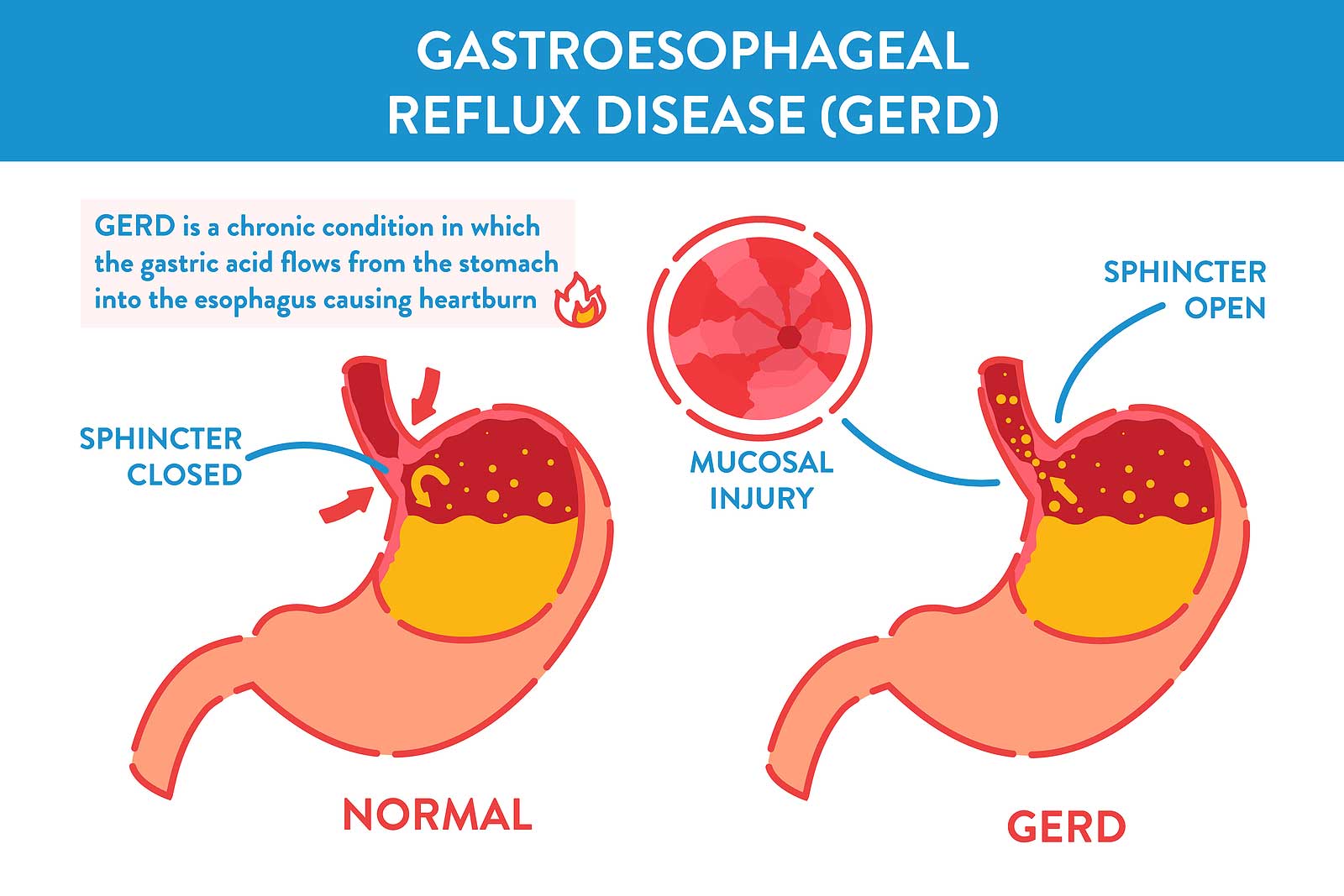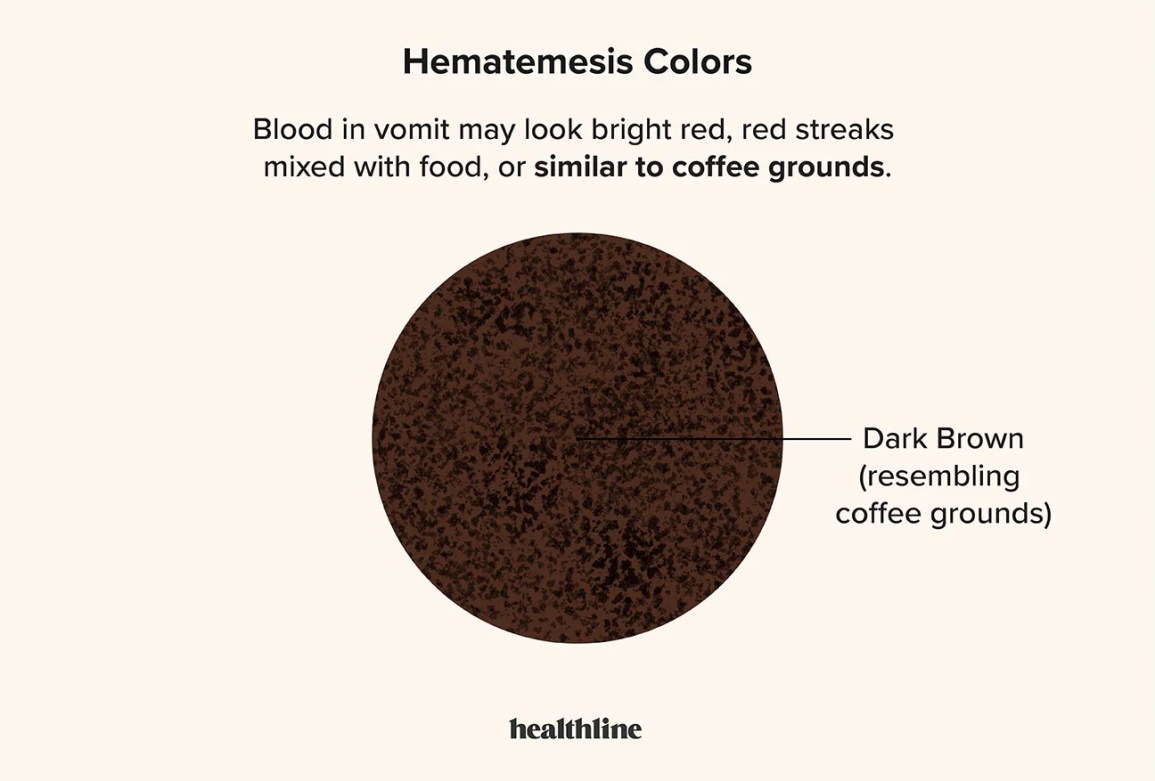Introduction To Vomiting After Drinking Coffee

Vomiting after drinking coffee can be a distressing experience for many individuals. While coffee is a popular beverage enjoyed by millions, some people may experience nausea and vomiting after consuming it. This phenomenon can be attributed to various factors, such as caffeine sensitivity, acid reflux, allergies or intolerances to coffee, and underlying medical conditions. Understanding the potential causes of vomiting after drinking coffee is important for managing and preventing these incidents. By addressing these factors and seeking medical advice when necessary, individuals can enjoy their favorite drink without experiencing unwanted side effects.
Introduction To The Phenomenon Of Vomiting After Consuming Coffee
Vomiting after consuming coffee is a distressing phenomenon that some individuals experience. While coffee is a popular beverage enjoyed by millions, it can have adverse effects on certain people. The reasons for this can vary, with factors like caffeine sensitivity, acid reflux, allergies or intolerances to coffee, and underlying medical conditions playing a role. Understanding these potential causes is essential in managing and preventing vomiting incidents. By addressing these factors and seeking medical advice when necessary, individuals can continue to enjoy their favorite drink without the unwanted side effect of vomiting.
Impact Of Vomiting On Health And Well-being
Vomiting can have significant impacts on a person’s health and well-being. It can lead to dehydration and electrolyte imbalances, as the body loses fluids and important nutrients. Prolonged or recurrent vomiting can also cause nutritional deficiencies, weight loss, and fatigue. In addition, the act of vomiting itself can be physically and emotionally distressing, leading to discomfort, embarrassment, and decreased quality of life. It is important to address the underlying causes of vomiting and seek appropriate medical support to minimize its impact on overall health and well-being.
Caffeine Sensitivity And Vomiting

Caffeine sensitivity can contribute to vomiting after consuming coffee. Some individuals have a reduced ability to metabolize caffeine, leading to a variety of symptoms including nausea and vomiting. When these individuals consume coffee, the excess caffeine can irritate the digestive system, causing discomfort and triggering the urge to vomit. It’s important for individuals who experience vomiting after drinking coffee to consider the possibility of caffeine sensitivity and to explore strategies for managing their intake of caffeine-containing beverages. Seeking guidance from a healthcare professional can help determine the underlying cause and provide targeted recommendations for managing symptoms.
Exploring The Link Between Caffeine Sensitivity And Vomiting
Individuals who experience vomiting after consuming coffee may have a heightened sensitivity to caffeine. Some people have difficulties metabolizing caffeine due to genetic factors, leading to a variety of symptoms including nausea and vomiting. When these individuals consume coffee, the excess caffeine can irritate the digestive system, causing discomfort and triggering the urge to vomit. Managing caffeine intake and opting for decaffeinated coffee or other caffeine-free alternatives may help alleviate these symptoms. Seeking guidance from a healthcare professional can provide tailored recommendations for individuals with caffeine sensitivity to better manage their symptoms.
Effects Of Excessive Caffeine On The Digestive System
Excessive consumption of caffeine can have several negative effects on the digestive system. Caffeine stimulates the production of stomach acid, which can lead to heartburn, acid reflux, and indigestion. It can also cause the muscles in the digestive tract to relax, resulting in slowed digestion and potential constipation. Additionally, caffeine can irritate the lining of the stomach and intestines, leading to inflammation and discomfort. These effects can contribute to feelings of nausea and can potentially trigger vomiting, especially in individuals who are already prone to digestive issues. It is important to be mindful of caffeine intake and consider reducing or eliminating it if experiencing gastrointestinal symptoms.
Acid Reflux And Its Relation To Vomiting

Acid reflux, also known as gastroesophageal reflux disease (GERD), can contribute to vomiting episodes after drinking coffee. When the lower esophageal sphincter (LES) weakens, stomach acid can flow back into the esophagus, causing irritation and discomfort. This irritation can trigger a reflex that leads to vomiting. Coffee can exacerbate acid reflux symptoms due to its high acidity and caffeine content. Avoiding trigger foods and beverages, including coffee, and making lifestyle changes, such as elevating the head while sleeping and eating smaller, more frequent meals, can help manage acid reflux symptoms and reduce the risk of vomiting.
Understanding How Acid Reflux Can Trigger Vomiting After Coffee Consumption
Acid reflux occurs when the lower esophageal sphincter (LES) weakens, allowing stomach acid to flow back into the esophagus. Coffee, with its high acidity and caffeine content, can exacerbate acid reflux symptoms. When acid reflux is present, the irritation and discomfort in the esophagus can trigger a reflex that leads to vomiting. The act of vomiting helps to expel the irritants and relieve the discomfort. To manage acid reflux and reduce the risk of vomiting after coffee consumption, individuals should avoid trigger foods and beverages, elevate the head while sleeping, and consider eating smaller, more frequent meals.
Managing Acid Reflux Symptoms For Coffee Drinkers
People who experience acid reflux symptoms while drinking coffee may find relief by implementing certain strategies. First, they can try drinking low-acid or decaffeinated coffee options, as they are less likely to trigger acid reflux. Secondly, it is advisable to avoid consuming coffee on an empty stomach, as this can exacerbate symptoms. Elevating the head while sleeping can also help prevent acid reflux during the night. Additionally, individuals should consider eating smaller, more frequent meals and avoiding other trigger foods and beverages that may worsen acid reflux symptoms.
Allergies And Intolerances To Coffee

Allergies and intolerances to coffee can also lead to vomiting after consumption. Some individuals may have an allergic reaction to certain proteins present in coffee, resulting in symptoms such as skin rashes, nausea, and vomiting. Additionally, some people may have intolerances to components in coffee, such as lactose or caffeine. These intolerances can also cause digestive issues, including vomiting. It is important for individuals experiencing these symptoms to identify and avoid the specific allergens or intolerances causing their reaction. Seeking medical advice and conducting allergy testing can help determine the underlying cause and provide appropriate treatment options.
Identifying Potential Allergies Or Intolerances To Coffee Leading To Vomiting
Identifying potential allergies or intolerances to coffee that can lead to vomiting is important for individuals who experience such symptoms. Allergies to coffee can occur due to an allergic reaction to certain proteins present in coffee. Symptoms such as skin rashes, nausea, and vomiting may indicate an allergic response. Additionally, some individuals may have intolerances to components in coffee, such as lactose or caffeine, which can also result in digestive issues and vomiting. It is crucial to seek medical advice and conduct allergy testing to identify and avoid the specific allergens or intolerances causing these reactions.
Symptoms And Treatment Options For Coffee-related Allergies
Symptoms of coffee-related allergies can vary from mild to severe. Common symptoms include skin rashes, nausea, vomiting, difficulty swallowing, abdominal cramps, and shortness of breath. In severe cases, anaphylaxis can occur, which requires immediate medical attention.
Treatment for coffee-related allergies usually involves avoiding coffee and other products containing coffee. Antihistamines can be used to relieve mild symptoms, while epinephrine may be needed for severe reactions. Allergy testing can help identify specific allergens in coffee, allowing individuals to avoid them and prevent future allergic reactions. Medical supervision and guidance are essential for proper management of coffee-related allergies.
Medical Conditions And Vomiting

Vomiting after drinking coffee can also be attributed to underlying medical conditions. Conditions such as gastroesophageal reflux disease (GERD), gastritis, peptic ulcers, and irritable bowel syndrome (IBS) can cause coffee-induced vomiting. These conditions can affect the functioning of the digestive system, leading to increased sensitivity to coffee or exacerbating existing symptoms. If vomiting after coffee consumption persists or is accompanied by other concerning symptoms, it is important to seek medical advice for proper diagnosis and treatment. A healthcare professional can help determine the underlying cause and provide appropriate interventions to manage symptoms and prevent future episodes of vomiting.
Investigating Underlying Medical Conditions That May Cause Vomiting Post Coffee Intake
Various underlying medical conditions can contribute to vomiting after consuming coffee. Gastroesophageal reflux disease (GERD), gastritis, peptic ulcers, and irritable bowel syndrome (IBS) are some conditions that can affect the functioning of the digestive system and result in increased sensitivity to coffee or exacerbation of existing symptoms. These conditions may cause excessive production of stomach acid, inflammation, or disturbances in the gut motility, leading to vomiting. If vomiting after coffee intake persists or is accompanied by other concerning symptoms, it is crucial to consult a healthcare professional for proper diagnosis and appropriate treatment.
Seeking Medical Advice For Persistent Vomiting Episodes
If vomiting episodes persist or become more frequent after drinking coffee, it is important to seek medical advice. Persistent vomiting may indicate an underlying medical condition that needs to be diagnosed and treated. A healthcare professional can conduct a thorough evaluation, including taking a medical history and performing appropriate tests, to determine the cause of the vomiting. They can also provide guidance and recommend appropriate treatment options to alleviate symptoms and prevent future episodes. It is important not to ignore persistent vomiting, as it may be a sign of a more serious underlying condition.
Conclusion

In conclusion, vomiting after drinking coffee can have various causes, ranging from caffeine sensitivity to acid reflux, allergies, and underlying medical conditions. It is important to listen to your body and seek medical advice if vomiting episodes persist or worsen. Understanding the potential causes can help individuals make informed choices about their coffee consumption and take appropriate measures to manage symptoms. Whether it’s reducing caffeine intake, addressing acid reflux, or identifying and avoiding coffee-related allergies, finding the right approach can help individuals enjoy their coffee without experiencing vomiting. Remember, consulting a healthcare professional is crucial for proper diagnosis and treatment.
Summary Of Possible Causes Of Vomiting After Drinking Coffee
Vomiting after drinking coffee can be caused by various factors. One possible cause is caffeine sensitivity, where individuals may experience nausea and vomiting due to an intolerance to caffeine. Another cause is acid reflux, as coffee can trigger the condition and lead to vomiting episodes. Additionally, allergies or intolerances to coffee can cause vomiting. Lastly, underlying medical conditions such as gastritis or ulcers can also result in vomiting after consuming coffee. It is important to identify the specific cause in order to take appropriate measures, such as reducing caffeine intake or addressing acid reflux, to manage symptoms effectively.
Tips For Addressing And Preventing Vomiting Incidents
When dealing with vomiting incidents after drinking coffee, there are several strategies that can be helpful. First, individuals can try switching to decaffeinated coffee or reducing their caffeine intake. This can help reduce the likelihood of caffeine sensitivity and its associated symptoms. Secondly, drinking coffee on a full stomach can help prevent acid reflux and subsequent vomiting episodes. It is also essential to identify any potential allergies or intolerances to coffee and avoid consuming it if necessary. Lastly, seeking medical advice and treatment for underlying medical conditions like gastritis or ulcers can help manage vomiting symptoms effectively.
FAQ About Vomiting After Drinking Coffee: Understanding Possible Causes
Q: Why do some people vomit after drinking coffee?
A: Vomiting after drinking coffee can be caused by various factors such as excessive caffeine intake, acid reflux, gastritis, or underlying gastrointestinal issues.
Q: Is it normal to vomit after consuming coffee?
A: While occasional vomiting after drinking coffee may occur due to individual sensitivity, persistent vomiting should be evaluated by a healthcare professional to rule out any underlying health concerns.
Q: How can excessive caffeine intake lead to vomiting?
A: Excessive consumption of caffeine in coffee can irritate the stomach lining, leading to nausea and vomiting. It can also stimulate acid production, exacerbating gastrointestinal discomfort.
Q: Can acid reflux be a cause of vomiting after consuming coffee?
A: Yes, acid reflux, where stomach acid flows back into the esophagus, can be triggered by coffee’s acidity, leading to symptoms like nausea, regurgitation, and vomiting in some individuals.
Q: What role does gastritis play in causing vomiting after coffee consumption?
A: Gastritis, inflammation of the stomach lining, can be aggravated by the acidity of coffee, causing nausea, vomiting, and discomfort after consumption, especially in individuals with sensitive stomachs.
Q: When should one seek medical advice for vomiting after drinking coffee?
A: If vomiting after coffee consumption becomes frequent, severe, or is accompanied by other concerning symptoms like blood in vomit, dehydration, or weight loss, it is advisable to consult a healthcare provider for proper evaluation and management.

Acoffeer, a brand that celebrates the joy of exploring the world with a cup of coffee in hand, was founded with a simple yet profound mission: to inspire and unite coffee lovers and travel enthusiasts around the globe. Our journey began with a deep passion for both coffee and travel and a strong belief in the power of these two forces to create unforgettable experiences. From the bustling streets of cosmopolitan cities to the serene landscapes of remote destinations, Acoffeer has always been committed to sharing the magic of discovering new places and savoring the perfect cup of coffee along the way.